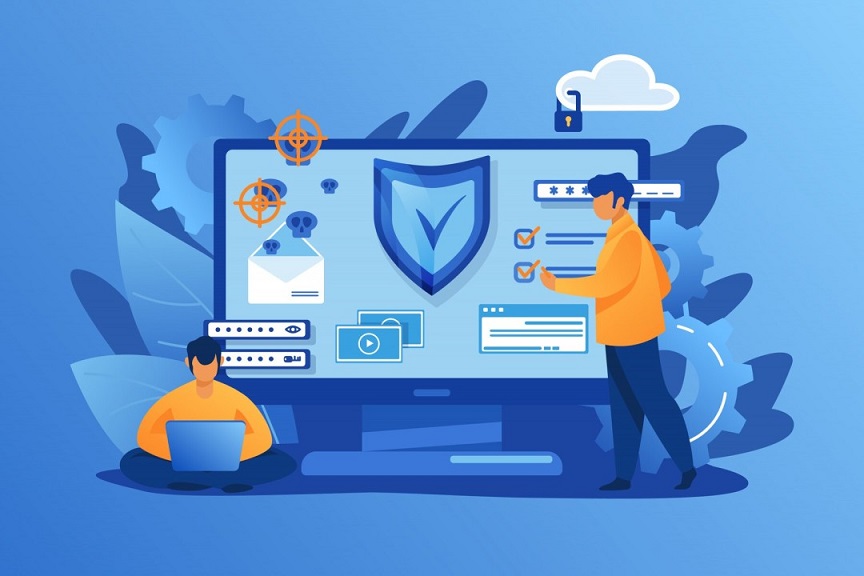Introduction
In today’s digital age, payroll security is more critical than ever. With increasing cybersecurity threats, ensuring the safety of sensitive payroll information has become paramount for businesses of all sizes. But why does it matter, and how can payroll in the cloud offer robust protection? You will gain an understanding of the significance of payroll security, and the crucial role cloud services play in protecting your data by reading this article.
Understanding Payroll Security
Payroll security involves the measures taken to protect sensitive employee information, including social security numbers, bank details, and salary data. A security breach in payroll can have severe consequences. It may result in identity theft, legal problems, and financial loss in addition to other consequences. Employers are required by law to protect the personal data of their workers; otherwise, they risk severe penalties and reputational damage.
Common Payroll Security Threats
Various threats can compromise payroll security. These include:
- Phishing attacks: Dishonest efforts to pose as a reliable source in electronic communications in order to steal confidential information.
- Ransomware: Malicious software that prevents users from accessing a computer system until a payment is made.
- Internal fraud: Employees or insiders who misuse their access to compromise payroll systems.
- Data breaches: Unauthorized access and retrieval of sensitive information.
Because these threats are always changing, it is critical for enterprises and IT service professionals alike to stay up to date on the newest security patches and potential weak points.
Benefits of Cloud Services for Payroll
Cloud services present numerous advantages, making them an excellent choice for managing payroll securely. Some of the key benefits include:
- Automatic updates: Cloud services frequently update their security protocols to protect against the latest threats.
- Scalability: Companies can easily scale their services up or down, depending on their current needs, without compromising security.
- Cost-effectiveness: Utilizing cloud services can be more cost-efficient than maintaining on-premises systems, especially since it reduces the need for physical infrastructure and maintenance.
- Enhanced data security: Cloud providers typically offer high-level security measures, including encryption, access controls, and regular audits.
How Cloud Services Enhance Payroll Security
Cloud services employ advanced security measures that significantly enhance payroll protection. Key security features include:
- Encryption: Cloud services ensure that payroll data is encrypted both during transit and when stored. Data is converted into a coded format by encryption, rendering it unintelligible to unauthorized users.
- Access controls: Implementing multi-factor authentication (MFA) and role-based access control ensures that only authorized personnel have access to sensitive payroll information. This limits the potential for insider threats and unauthorized access.
- Regular audits: Conducting frequent security audits helps identify and address vulnerabilities promptly. Regular audits also ensure compliance with relevant regulations and standards.
Real-Life Examples of Payroll Security Breaches
Numerous high-profile payroll data breaches have underscored the importance of stringent security measures. As one article highlights, the consequences of such breaches can be devastating. Companies not only face financial losses but also suffer significant reputational damage. Additionally, they may lose the trust of their employees and customers.
Steps to Enhance Your Payroll Security
Organizations can take several proactive steps to bolster their payroll security and minimize the risk of breaches. These steps include:
- Regularly updating software and systems: One way to guard against known vulnerabilities is to make sure that all systems and software are up to date with the most recent security patches.
- Training employees on security best practices: Employee education regarding cybersecurity risks and best practices can lower the possibility of human error, which frequently plays a big role in security breaches.
- Implementing multi-factor authentication: By requiring users to authenticate themselves via several channels before accessing sensitive data, multi-factor authentication (MFA) provides an added level of protection.
- Conducting frequent security audits: Frequent audits guarantee adherence to security policies and laws and assist in identifying potential risks.
The Future of Payroll Security
As technology evolves, so do the methods to enhance payroll security. Artificial intelligence and machine learning are two innovations that have the potential to provide cutting-edge security solutions. AI-based solutions, for example, can examine payroll data trends and identify irregularities that can point to a security risk. By taking a proactive stance, you may add an extra degree of security and stop breaches before they happen. Companies are already investing in these technologies to stay ahead of cyber threats.
Conclusion
Ensuring payroll security is essential for protecting sensitive employee information and maintaining organizational integrity. Because cloud services use sophisticated security features like encryption, access limits, and frequent audits, they provide a reliable option. By understanding common threats and adopting proactive security practices, organizations can safeguard their payroll data and mitigate the risk of breaches. Embracing cloud services for payroll management enhances security and provides numerous operational benefits, making it a wise choice for businesses in the digital age.
Read More: BigTechoro:Complete Tech Solution Everyone










